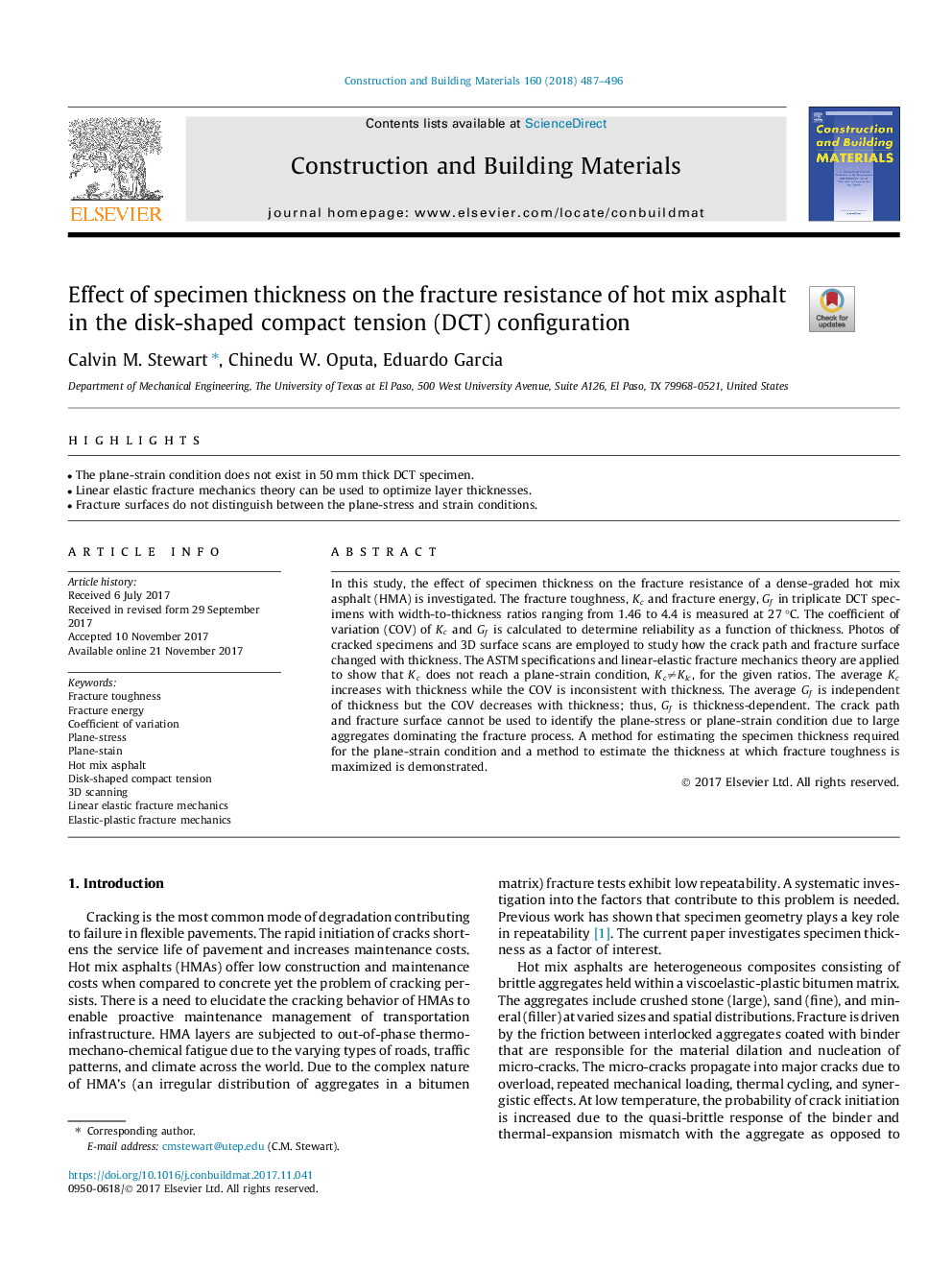| Article ID | Journal | Published Year | Pages | File Type |
|---|---|---|---|---|
| 6717096 | Construction and Building Materials | 2018 | 10 Pages |
Abstract
In this study, the effect of specimen thickness on the fracture resistance of a dense-graded hot mix asphalt (HMA) is investigated. The fracture toughness, Kc and fracture energy, Gf in triplicate DCT specimens with width-to-thickness ratios ranging from 1.46 to 4.4 is measured at 27â¯Â°C. The coefficient of variation (COV) of Kc and Gf is calculated to determine reliability as a function of thickness. Photos of cracked specimens and 3D surface scans are employed to study how the crack path and fracture surface changed with thickness. The ASTM specifications and linear-elastic fracture mechanics theory are applied to show that Kc does not reach a plane-strain condition, Kcâ KIc, for the given ratios. The average Kc increases with thickness while the COV is inconsistent with thickness. The average Gf is independent of thickness but the COV decreases with thickness; thus, Gf is thickness-dependent. The crack path and fracture surface cannot be used to identify the plane-stress or plane-strain condition due to large aggregates dominating the fracture process. A method for estimating the specimen thickness required for the plane-strain condition and a method to estimate the thickness at which fracture toughness is maximized is demonstrated.
Keywords
Related Topics
Physical Sciences and Engineering
Engineering
Civil and Structural Engineering
Authors
Calvin M. Stewart, Chinedu W. Oputa, Eduardo Garcia,
